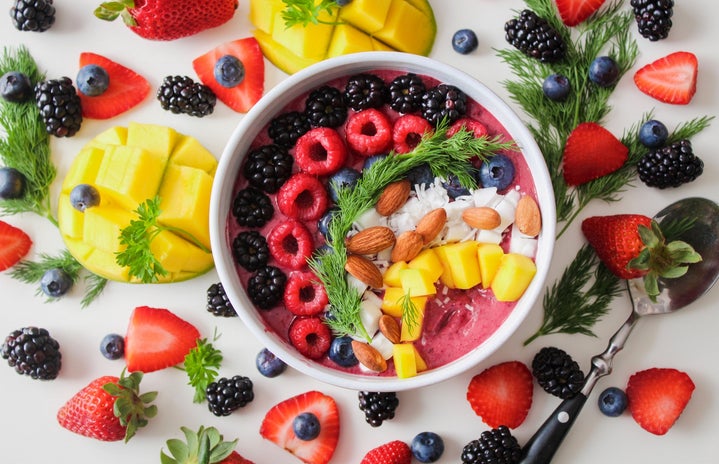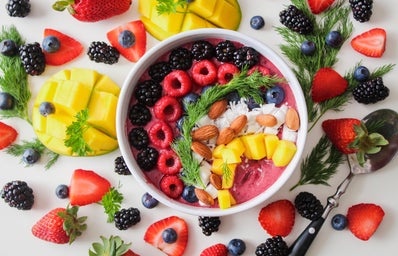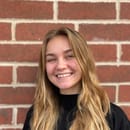Your purpose might reveal itself in unexpected ways
Going through an eating disorder (ED) is a life-changing experience in more ways than one. In fact, there are times when it’s transformed my life in ways I never anticipated; one of those being the realization that I needed to change my major for my well-being. Despite the hardship of switching paths right before senior year, I am exceedingly grateful for how much I’ve grown because of it.
It is worth noting that I didn’t want to be a dietitian from the get-go. Upon starting college my freshman year, I wanted to pursue funeral directing of all things. That may sound strange, but my mom has been a funeral director for a decade now, so I’ve had some serious exposure to the career. However, towards the end of sophomore year, I realized that I may have been squeezing myself into funeral directing simply because it’s what I was familiar with.
I remember taking a class called “Nutrition and Weight Management” that piqued my interest in health and wellness. Throughout the semester, we were required to track our calories on MyFitnessPal and keep an exercise log weekly. When my professor announced that this would be a necessary part of our class work, all I could think about was my little sister who was in recovery from a severe eating disorder. I knew how badly calorie counting apps and fixation on exercise had harmed her prior to recovery. I called my mom right after class and told her that this was something I had to do for a grade, but I promised myself I wouldn’t let it get out of hand… famous last words, right?
The semester I took Nutrition and Weight Management was the same time COVID-19 hit the U.S. hard and the nation went on lockdown mode from March through May of 2020. During these months, I was still tracking my calories and exercising regularly, but I was becoming more and more fixated on these aspects of my life. In fact, I was now doing it entirely for myself rather than the class assignment.
My disordered thoughts began to consume me from the inside out. I was measuring out cups of lettuce for my salads. I was doing HIIT workouts everyday because if I missed one it was the end of my world. I was irritable because I was always hungry for things that I wouldn’t let myself touch, like pizza or milk. I was losing weight to the point that I lost my period and my libido. Better yet, I was now convinced that dietetics was my calling. I was so invested in my physical health, food intake, weight and appearance that nothing else mattered in life. Therefore, it seemed like I should easily be able to excel in dietetics.
By the end of the 2020 lockdown, my ED was in full swing. Not only was I hurting my little sister in her recovery, but I was hurting myself and everyone around me. I was painfully blind to the pickle I was in because eating disorders have a funny way of doing that; but it’s no wonder when diet culture consistently told me that what I was doing was healthy, or when the people around me praised my weight loss and discipline. I was in way too deep and I didn’t even know it.
You may be thinking, how could this woman possibly be a good dietitian when she has such a negative relationship with food? Well, I would say that’s a valid thought. I likely would have been a toxic dietitian preaching unsustainable food rules and harmful weight loss regimens, among other things. However, there is a beckoning light at the end of this tunnel.
I got help.
In May of 2021—the day after the spring semester ended—I got a call that inpatient hospitalization was ready for me. Inpatient treatment is the highest level of ED care, and after that I went to a Partial Hospitalization Program (PHP). On my first day of PHP, the meal-time supervisor asked what I’m going to school for and I said I wanted to be a dietitian. One of the other patients in the room sneered and asked, “well, haven’t we all?” As much as this girl’s comment was out of line, I sat on what she said because there was wisdom beneath the surface of her remark. She was implying that most people with EDs want to be dietitians at some point because of their complete obsession with food. So there I was, chewing my waffles and asking myself at 8 a.m., is this really what I want to do or is it what the eating disorder wants me to do?
I thought about food so often over the past two years that it only made sense to pursue a profession where I’d talk with people about it all day. I knew I would have plenty to contribute because of my “passion” for learning about macronutrients and calories and vitamins and so on. However, my ability to think clearly about my intentions here was always clouded by the ED.
Then, a couple days later, it hit me like a train—I never really had a pure, wholesome passion for learning about the makeup of foods. I literally hate chemistry, for the record. I was actually quite miserable in my schooling not only because I was hungry all the time, but I didn’t even enjoy the content. As I took the time to heal and reflect in treatment, I developed a profound new outlook on what I really wanted, which was certainly nothing to do with dietetics. As I was unlearning to be afraid of foods and relearning how to eat, I was simultaneously practicing the wonderful concept of food freedom—giving myself permission to enjoy all foods and listening to my body’s needs. And guess what? Since I was nourishing myself properly and getting help from my healthcare team, I was no longer completely obsessed with food. Coincidentally, not a single part of me wanted to have to think or talk about food at a job.
I was in several types of ED treatment for about two and a half months over the summer of 2021. This time of healing and rest was pivotal in helping me realize that I didn’t want to be a dietitian after all. I had also been in touch with my academic advisor frequently because I knew my path would be changing and it was crunch time. So, with her help, I switched my major to Life Sciences Communication and even added two minors — entrepreneurship and digital studies.
I chose this path because I could complete it in the next three semesters, I could stay in the College of Agricultural and Life Sciences, and also because I wasn’t totally sure what I wanted to do. This flexible major gave me options rather than tailoring to one specific job after graduation. Additionally, I’ve always known that I enjoy communicating with people in many different settings. Therefore, it was easy to picture myself working in a science-related field doing research or marketing with others.
Fast forward to now and I am so grateful for the way life has turned out. Although it was terrifying to switch majors so late and enroll in entirely different classes, I enjoy my schooling much more now than I ever did before. I graduate this December and I feel so inspired about my options for the future. Most importantly, I am thankful that I struggled with and overcame an ED because it has taught me an enormous amount about who I am and what I want to embody, whether that be in my personal life or my professional life. I may have not changed my major if it hadn’t been for the hardships and recovery, so I am thankful for it all. You may find that whatever crosses your path is meant to lead you in a new direction full of opportunities and growth.


